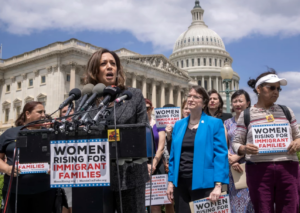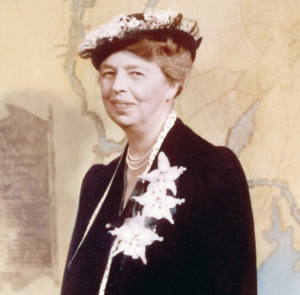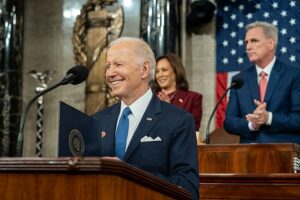Political Theater at the 20th National Congress of the Chinese Communist Party
The show of force and shift in new leadership firmly established Xi’s undisputed control over party and country, making the entire week-long affair seem less about confirming political appointments, and more of a coronation ceremony for Xi.

Image Credit: Kevin Frayer/Getty Images
Held from October 16 to 22, China’s 20th Party Congress was a series of political spectacles. President Xi Jinping cemented his status as Paramount-Leader-For-Life, after being confirmed as General Secretary for an unprecedented third consecutive term. This not only broke the two-term limit established four decades ago by Deng Xiaoping but also made Xi the first Chinese leader to rule for more than two consecutive terms since Chairman Mao. Xi ushered in a new guard to helm the Politburo Standing Committee, all promoted based on their personal loyalty, and ensured the systematic removal of any factional opposition within the upper echelons of the Chinese Communist Party (CCP). Most publicized of all was the political farce that played out as former President Hu Jintao was physically removed during the closing ceremony before the new leadership was announced, in front of a baffled audience of foreign media outlets and journalists. The show of force and shift in new leadership firmly established Xi’s undisputed control over the party and country, making the entire week-long affair seem less about confirming political appointments, and more of a coronation ceremony for Xi. The theatrics of the 20th Congress’ was a display of political dominance and might that would have impressed even the Chinese emperors of old, and will likely make King Charles III’s upcoming coronation seem like a paltry affair in comparison.
Much like how Kremlinologists during the Cold War relied on minute details regarding the activities of the Soviet leadership to predict the hierarchy of succession, the pomp and pageantry surrounding the reveal of the new lineup for the Politburo Standing Committee is a telling indication of the future of Chinese politics. According to Reuters, the secrecy and speculation surrounding the backroom politicking for the next generation of leaders who would oversee the world’s most populous nation were only dispelled when the seven men “marched single file in order of their rank to their places on the stage” in a brief and carefully choreographed ritual. The importance of the sequence of the men who followed Xi onstage is more than just political theater, but rather a revealing glimpse into internal power balances in the CCP.
As reported by the New York Times, the three new appointees to the top leadership body of the CCP are noted Xi loyalists: Li Qiang, the current Shanghai party secretary, now the second most powerful man in China; Ding Xuexiang, a senior aide to Xi; and Cai Qi, the party secretary of Beijing whose ties to Xi goes back decades. While official titles of the standing committee members have yet to be confirmed, the order in which they were presented in during the choreographed ceremony reflects the social and political hierarchy of China’s leadership. Li Qiang, who dutifully trailed behind Xi, is widely presumed to be the next Premier and the one responsible for managing China’s vast economy. Not only does this break from the long-standing precedent that prospective candidates for premier must have held a national leadership position and served as the vice premier, but it also indicates Xi’s priorities and sends out a pointed message to the rest of the CCP that “loyalty will be rewarded above all else.” Li Qiang faced widespread criticism over his poor handling of Shanghai’s COVID-19 outbreak earlier this year in February and the following controversial lockdown of the financial hub that led tens of millions of residents to experience food shortages. Many wondered if that would spell the end of his political career. Yet, his elevation to the zenith of power in the party sends a clear message that, above all else, loyalty to Xi is what makes or breaks your political career, regardless of political performance, popularity, or experience. The Chinese government is growing as a vast network of patron-client relationships, and seemingly from Xi’s perspective, this structure is uniquely qualified to address the mounting economic and societal problems China faces.
On the flip side, the demotion of Hu Chunhua from the Politburo, a vice premier once regarded as a potential successor to Xi, as well as the exclusion of Premier Li Keqiang and former vice premier Wang Yang, both proteges of Hu Jintao, from the Politburo Standing Committee symbolizes the unilateral exclusion of the more reform-minded Communist Youth League (CYL) faction. Once a robust political network, the CYL, and its influence diminished considerably during Xi’s rule. While we may never know if the publicly televised removal of Hu Jintao was a deliberately planned piece of political theater or not, it nevertheless presents a chilling image of power politics in China moving forward. In a moment filled with poignant symbolism, the elderly and frail Hu was firmly escorted out to exit stage left. He walked past a police line-up of his former proteges, allies, and subordinates, all of whom owed their political careers to him, yet were unable to meet his gaze or give any reaction. They had become prisoners, held in thrall under Xi’s watchful eye.
On his way out, Hu patted the shoulder of his protege, Premier Li Keqiang, who is seen here visibly reluctant to acknowledge his mentor’s presence. Next to Li, Wang Yang fastidiously practiced the age-old maxim of “see no evil, hear no evil, speak no evil.” The callous indifference on display was a strong reflection of how Xi has unreservedly dismantled all challenges to his power. Hu’s exit represented a public humiliation of the once powerful CYL, as well as a symbolic display–intentional or not–of the end of the more open policies of the Hu Jintao era. We now enter a new era of Chinese politics, one where Xi has cemented himself as the very nexus around which the CCP must operate. Any vestige of influence of party elders or rival factions has been thoroughly eradicated, leaving no other alternative for the leadership but to dutifully fall in line behind Xi. All hail the once and future emperor.
Konrad Lee (he/him) is a second year MA student in International Relations at NYU. Having received a BA in Government and History from Wesleyan University, he worked for a year as an analyst for an investment firm before deciding to pursue his passion and interests by studying IR at the graduate level, with a specific focus on the Asia-Pacific region and US-China relations. He hopes to be able to work long term in the field of research and policy analysis. In his free time (drastically limited by his impending thesis), you can find him at 404 Fitness or taking his dog out for adventures in the city.









